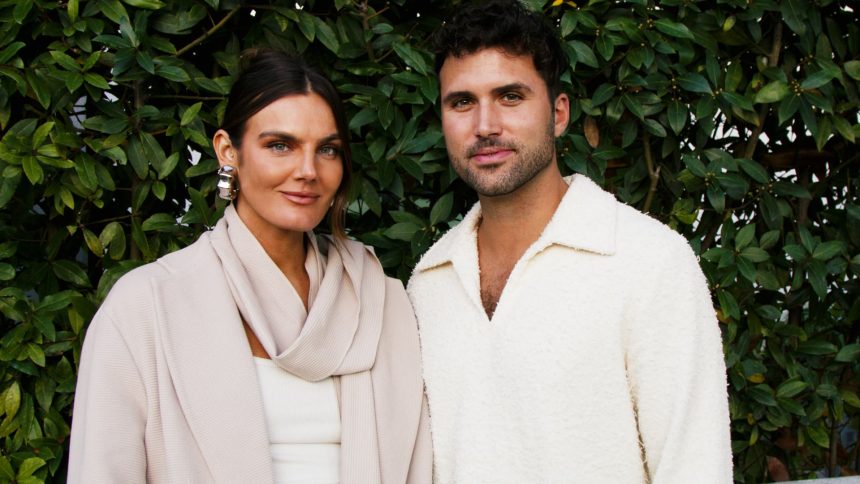Tessa Barton and Cole Herrmann launched their photo editing app for two reasons: passion and practicality.
In 2017, the newlyweds were struggling to pay their $2,800-per-month New York rent. They tried a series of side hustles — a denim line, collage kits, writing and selling a book — but none were particularly lucrative, and the products took up too much space in their 250-square-foot studio apartment.
At the time, Herrmann was a full-time software developer. Barton was a freelance photographer and burgeoning influencer. They turned to an idea that used both of their skillsets: making and selling photo filters on Adobe Lightroom.
Over several weeks, the filters gained an audience, prompting the pair to launch their own photo-editing app called Tezza — Barton’s nickname since college, she says — in 2018.
DON’T MISS: The ultimate guide to earning passive income online
Today, Tezza is a lifestyle brand that combines most of the couple’s side hustle attempts — selling collage kits, apparel and a recently launched magazine, in addition to its flagship photo and video editing app. The Los Angeles-based company brought in $26.5 million in sales last year, or $2.2 million per month on average, according to documents reviewed by CNBC Make It.
“We started this without the intention of it becoming a business,” says Herrmann. “It really started as a passion project, a way for us to hopefully get some extra income to pay rent and survive in New York City.”
Creating and learning from mistakes
Barton’s photography career started at age 16. She took photos around her home state of Utah, edited them in the style of high fashion magazines and posted them on Instagram, she says.
Eventually, brands like Urban Outfitters and Free People — both owned by parent company URBN — reached out, offering to pay her to plan shoots around their products. By the time she and Herrmann moved to New York in 2016, she’d amassed roughly 20,000 followers on social media, she says.
Publicly, the couple’s lifestyle was highly aspirational. Behind the scenes, they worked unglamorous hours for 18 months to stay afloat while building their app.
“We were building it, probably, from the hours of 10 p.m. to 3 a.m.,” says Barton, adding: “It was a lot of tears and trial and error and thinking, ‘OK, this is a dumb idea. It’s never going to work.’ Because we couldn’t really get it [to work] for a long time. It was a struggle.”
Tessa Barton and Cole Herrmann co-run photo and video editing app Tezza. Last year, the platform brought in $26.5 million in sales.
To differentiate Tezza from competitors, the couple decided to lean into what they’d learned from Barton’s Instagram followers: People wanted an accessible way to make their lives look Instagram-worthy.
“Every other app was catering to this kind of professional look,” Herrmann says. Instead, Tezza went bold. Its photo editing features were simple. The app’s bright red design featured chunky fonts and used casual millennial slang to connect to its audience.
The approach worked: Tezza is featured on Apple’s “Essential Photo & Video Apps” list, and regularly ranks between competitors Lightroom and VSCO in app stores.
Barton and Herrmann now run Tezza and live with their daughter in Los Angeles.
John P. Beatty for CNBC Make It
The couple keeps Tezza’s team small — currently 12 employees — to save on costs and maintain control over the brand’s “creative vision,” Herrmann says. The base app is free, and users can pay to access to different features. Its most expensive subscription, $59.99 per year, includes full access to a recently released video editing tool.
Barton and Herrmann serve as co-CEOs of their company, spending most of their time building new photo and video editing features on the app. Their future goal is to expand the brand into physical spaces by hosting in-person events, but their only immediate agenda item is to keep experimenting and pursuing new ways to be creative, says Barton.
“The fear of starting something is the hardest part,” she says. “Maybe [your first idea] won’t be your product, but you’ll learn everything you need to know for the next. We really realized … you got to just be consistent and keep [creating].”
Want to make extra money outside of your day job? Sign up for CNBC’s new online course How to Earn Passive Income Online to learn about common passive income streams, tips to get started and real-life success stories. Register today and save 50% with discount code EARLYBIRD.
Plus, sign up for CNBC Make It’s newsletter to get tips and tricks for success at work, with money and in life.
Read the full article here




